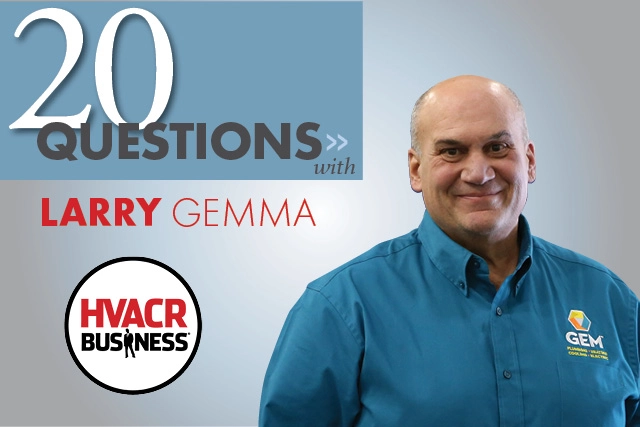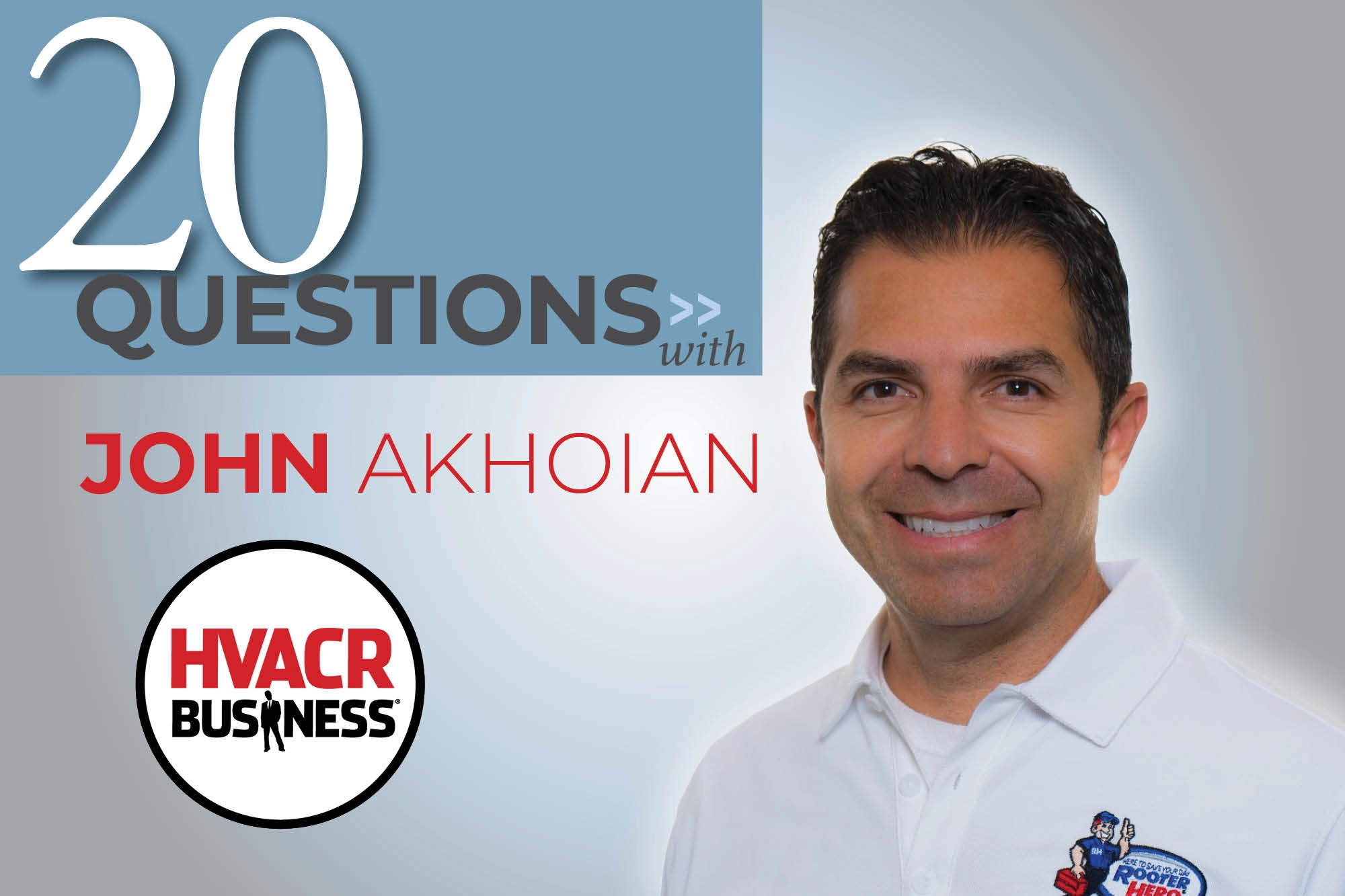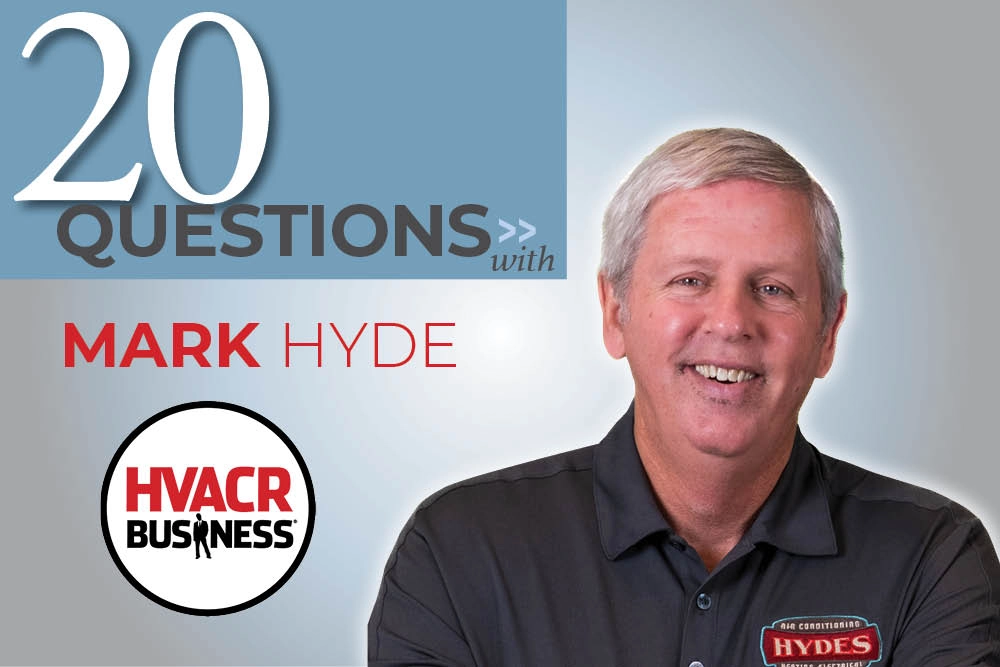We sat down with Larry Gemma, owner of GEM Plumbing & Heating in Lincoln, R.I., a 2019 Tops in Trucks Fleet Design Contest winner. Larry discussed growing the family business, recruitment and the importance of company culture.
1. Can you tell us about your background?
My father started a small, little business in 1949 and that’s basically what it was back then. It was just himself and whomever he could get to work with him on different jobs. He had nine children and, basically, we didn’t have a choice. When we got old enough to work, we went to work. And it’s been a labor of love ever since.
2. So GEM is truly a family business?
Yes, all nine of us siblings, at some point or another, were working for the business. It was interesting to grow up that way.
3. When did you get involved in the business side of it?
Once my brothers and myself graduated from college in the early 80s, we all got involved in the industry itself, but we worked at it from a very young age. We knew the industry before we got into it, but until we graduated college, my father was still, essentially, a one-man show.
4. What was that like?
When we got involved, GEM did mostly plumbing. HVAC came in a bit later because the company wasn’t of the size to handle anything that was larger equipment, like hospitals and restaurants. In the 1980s, we got involved with other companies that we soon after purchased and brought them on board.
5. What did you go to college for?
I went to college for business management and my brother Eddie was in marketing. Our oldest brother Joe is a dean at Providence College. He decided not to get in the business after school because he’d already worked with my dad doing his books at a very young age. He decided he’d rather go to college and work with the school.
6. Was it your intention to work for the family business after college?
Yes, we were very entrepreneurial, so we never visualized ourselves working for anyone else. And I would have to say that was pretty much the whole family, with the exception of maybe my brother Joe, only because he loved teaching so much. But we knew we’d be doing this one way or another. We never visualized ourselves working for anyone else.
7. How did you split roles within the company?
I’ve always had an affinity toward services, both residential and commercial. And two of my brothers have pretty much always had an affinity to working on big mechanical jobs. So they’ve always run the mechanical part, and I’ve always run the services. My younger brother Anthony, we actually paid for him to go to law school because we knew that at some point we needed someone to help us go out and administer buying some of the buildings and some of the equipment and the companies we were acquiring.
8. How many siblings still work at GEM?
Out of the nine of us, seven of us have worked for the company at some point, and six of us still do. We’re a big family, and we all get along and we have our differences, but we always work them out. We give each other a lot of room to do what we need to get done.
9. How did you really start to grow?
Back in those days there were very few very large companies. Most of the major companies were in manufacturing on the East Coast and most of them had their own maintenance staff that was handling those facilities. As we were going along and we acquired a few smaller companies ... they were very knowledgeable in the equipment, but they were looking to get away from the bookwork part of it.
10. How much impact did those acquisitions have?
We were doing a lot of these big factories industrially for piping and fire protection, water mains and all that. Then we decided to get involved in the larger equipment on the HVAC side. We started to advertise for technicians and we slowly grew that in the ‘80s and ‘90s to probably about 25 to 30 employees.
11. What’s your business mix today?
We handle plumbing, heating and electrical for residential, commercial and industrial. We also do our own fabrication for ducts. I’d say we’re 60 percent commercial and 40 percent residential.
12. Where do you see the most significant growth in this industry?
Service contracts. People don’t have the time or the energy to want to call 20 different companies. They want to find someone they can trust and they can get a contract for the life of the equipment. We’re going to be doing a lot more replacement work at a shorter time span, but it’s going to be mostly in service contracts, both residential and commercial.
13. What’s recruitment like for your company?
Within the last two years, we’ve put a benefits package together that is second to none. And it’s gotten much better as far as recruitment goes. Presently, we probably have close to 450 employees.
14. What are the challenges of growing that big?
I think the biggest challenge in recruiting today is the ages of the real talent for the employees. Most employees are 50 or older in the Northeast that have the licenses to do what they need to do, or that we need to get done.
15. How do you address that?
With the younger generation, we want to make sure that we have our own schools, we have our own trainers, we’re partnered with all the local colleges and universities and trade schools to try and get the best talent out there. We bring them in and if they want to learn we’ll give them all the opportunity in the world.
16. What do you find most rewarding?
The people. I love working with the employees. I love talking to them, helping them. We go through all the laughter and all the sorrows that everybody goes through in a career, and the most rewarding thing is the people and the customers, meeting the customers.
17. Who’s been your biggest role model?
My mom and dad, God rest their souls. My dad just taught us that if you treat your customers better than you want to be treated, then you’ll never go hungry. And he would get up at 2 a.m. if somebody called him and if he had to go out, he went out. He didn’t question it; he just went out.
18. How do you manage profitability?
My sister-in-law manages all the financials. And we manage our financials here on a daily basis. So, as crazy as it sounds, we watch every penny going out. And I know that sounds very difficult to do. When it comes to spending, we keep an eye on everything and we have budgets for everything. We know how many calls are coming in, we know the revenue per call … we monitor that through a dashboard and we have all the information in front of everybody.
19. How do you ensure quality?
We call every customer back and we do ride-alongs. The managers, three days a week, will go out, hop in the truck and go for a ride-along just to see how they’re doing. We do probably on the services side, anywhere between 125 and 175 calls a day. And all those customers are sent both emails and call backs to see if everything went well and if there’s anything we can do better.
20. Why is that communication so important?
As large as we are, that communication keeps it a bit like a family business. And right now we’re in the process of making it so customers can call us and ask us questions at no cost through our Ask GEM Program. That way, if they have a question that we could solve on the phone, we might as well help them out without having to send a truck out there to do it.






